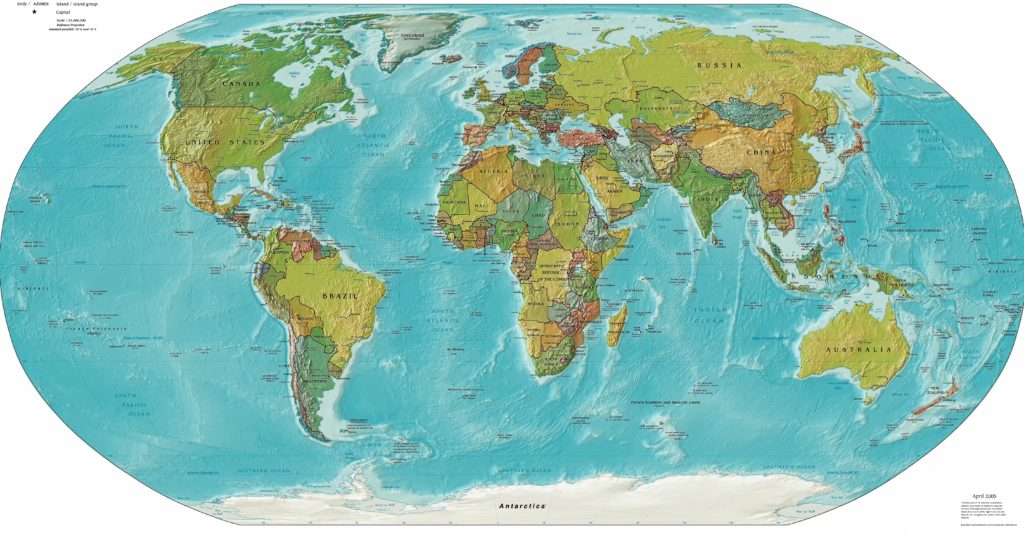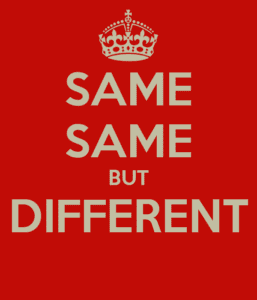Three Months, Four Continents
I just returned from traveling to my fourth continent in three months, which is something I have never done before. I am frequently asked by undergraduate students, law students, and other lawyers what an international transactions lawyer does on a daily basis and how I got here. To commemorate making partner at my firm this summer, I want to share my journey. This reflects my decisions and my growing understanding of the interplay between geopolitics, global economies, and the legal market.
Understanding the China Opportunity
I graduated in the spring of 2008 with an undergraduate degree in Chinese and a minor in English literature from Brigham Young University. I could read and write extremely well in English and moderately well in Chinese. In the early-mid 2000s, I spent three years living and working as a teacher in China: two years as a volunteer missionary for The Church of Jesus Christ of Latter-day Saints in Hong Kong and one year teaching English at the Sichuan Engineering Technical College in Deyang, Sichuan Province.
During the 2000s, I was just starting to understand how complex and interesting the world was. Based on population dynamics alone, I concluded that China’s rise was inevitable. I also posited that if I kept up with my Chinese studies and added a viable skill, I would be able to find a meaningful career in the China space. Lawyering seemed like a safe bet.
No Path Forward as a Litigator or Law Clerk
During my first year of law school at The George Washington University, I started to think more seriously about what type of lawyer I wanted to be. I correctly assumed that in the sea of lawyers I needed to be able to distinguish myself in some way. Judging by my Type A classmates who wanted to be litigators, I decided two things: (a) I didn’t live for competition like most of them and (b) I didn’t like myself when I was in a hyper-competitive situation.
So, a litigation path was a no-go. I also figured that I didn’t want to be a law clerk because I didn’t like the idea of being shut up in an office doing legal research and memo writing for the rest of my life. I liked writing, but I also liked variety. And I liked being around people.
Part of my beef with law school curricula was the lack of practical experience for students. Do you want to be a law clerk for a judge or write stellar appellate briefs? Law school can help you with that.
Do you want to be a judge? They can probably get you there.
Do you want to be a litigator? You can develop those skills in law school, all day every day.
Do you want to be a public interest lawyer? They have clinics for you to get experience.
Do you want to work for the government and develop or implement public policy? Your law school experience and connections can help you get there.
Do you want to be a business lawyer? Sorry, they’ll have you read a lot of judicial opinions about the centuries-long development of corporations and fiduciary duties. But if you want practical experience, you’ll have to learn that on the job.
The Economy Matters in Legal Hiring
With my international experiences and languages, I assumed that I could find a place as an international attorney working with China. I studied Chinese Business Law with Don Clarke, who exposed me to so many new ideas. But this was the Great Recession of 2008-2009. The business market, as a leading indicator for the legal services industry, dictated extreme caution for years to come. We watched the economy crater during our first semester of law school and anxiously waited for a rebound. As law students searching for career opportunities at law firms, we felt the effects of this near hiring freeze.
I worried about my overall marketability in that tough economic environment, so I decided to spend my Fridays during my 2L year studying for the GMAT and trying to get into George Washington’s MBA program. I recognized that my focus on languages and literature in my undergraduate years left a significant hole in my business education.
Even though I did not know exactly what business lawyers did, I felt strongly that I would benefit from rubbing shoulders with business leaders and learning the same fundamental lessons they were learning. Pausing law school to complete an MBA was perhaps the smartest decision I made in law school toward enhancing my career path.
Many of the talented lawyers who graduated ahead of my class struggled to find legal jobs. My graduating classmates and I found ourselves competing with these prior graduating classes, as well as among ourselves. In the middle of this chaos and uncertainty, I happily had two potential job paths.
The first path would have put me in China almost immediately, but I would have been working at a U.S. consulate doing administrative work. That only checked one of my two boxes (China + legal).
The second path, which I chose, took me to a small firm of 30 attorneys in Bangor, Maine. That also only checked one of my two boxes, but I felt that it was the more essential of the two boxes at that stage of my career. I needed to know whether I liked being a lawyer and whether I could be a competent business lawyer. So, I shelved my plans to become an international business lawyer and went to work as the sole corporate associate working for several partners.
Finding the Lawyers I Wanted to Become
As I sharpened my general corporate and transactional skills in Maine, I felt an increasing urgency to find an international lawyer who could mentor me, even in some small way. I needed to know how to translate my skills into the international arena. But I could not find a single lawyer in New England who had the skill set I needed.
Soon after, my wife and I relocated our family from Maine to Utah to be closer to our extended family. I joined a networking group to start building my Utah client base. A business consultant in my networking group helped me think more clearly about my future plans. He asked me who was at the top of their game in my industry. I told him that Dan Harris was doing exactly what I wanted to do. He wrote the China Law Blog about the practical aspects of doing business with China. I liked his no-nonsense, unvarnished writing style.
My consultant friend encouraged me to reach out to Dan Harris, travel to Seattle, and take Dan out for lunch. By that time, I had a Utah-based client with operations in Washington, so I made the trip. Dan and I hit it off. My original request that he mentor me turned into a job offer not long after. My legal foundation in Maine provided the essential footing for launching an international career.
Boutique or BigLaw and Not Much in Between
This past year I have spent a significant amount of time interacting with international lawyers on five continents. This has broadened my understanding of the international legal market. In Europe and Latin America, both geography and market factors dictate the necessity for many lawyers to develop an international-facing practice.
In the United States, we have only two border countries, and Canada’s economy is significantly integrated with the US. It is easy and entirely practical for attorneys in the US to develop a robust domestic practice without worrying about tackling international markets.
This is why, as a rule, lawyers aspiring to do international legal work from the US need to find a home either at a large international law firm or a boutique international law firm. There is not much space in between.
Mentors Love to Mentor Promising Talent
I have mentored many undergraduate and law students in my career. I like to do this because I was not smart enough to know how to network well when I was a student. I always thought that I did not have enough time in my schedule or money to meet potential mentors for coffee or lunches. And I assumed that I was only bothering them and that I did not really have anything to offer them so they would not want to spend time with me.
That is the wrong way to think about mentoring relationships. It takes work to develop any type of relationship, and this is especially true with successful people. As my consultant friend said, “People at the top of their game love mentoring upcoming talent. You just need to be persistent and respectful of their time.”
International lawyers are, like most lawyers, in the relationship business. I am building my relationships in many industries across the globe. If you want to connect with me, that is where you will find me (along with on Linkedin).
YOUR Future
For those contemplating an international law career, my story has a few takeaways. First, be adaptable to changing global and economic dynamics. These external factors often shape our professional paths in unexpected ways. Second, seek out mentors — those who have walked the path before can offer invaluable insights, opportunities, and support. Third, it’s not always about immediate gain; sometimes, a detour enriches your journey in ways a straightforward path never could. Lastly, believe in the value of relationships. Whether they are cultivated across a coffee table or across continents, genuine connections pave the way to a fulfilling career and life. There is no substitute for in-person, one-on-one, deep connections, whether you are talking business at a London coffee shop or trail running in Liechtenstein (both of which I did this month).
To all aspiring international lawyers: as you embark on your unique journey, stay curious, remain persistent, and always be open to the world’s vast possibilities.
Your story is waiting to be written.
For more on international lawyering, check out A Reality Check and a Word of Encouragement to the Aspiring International Lawyer and On Becoming an International/China Lawyer.

























